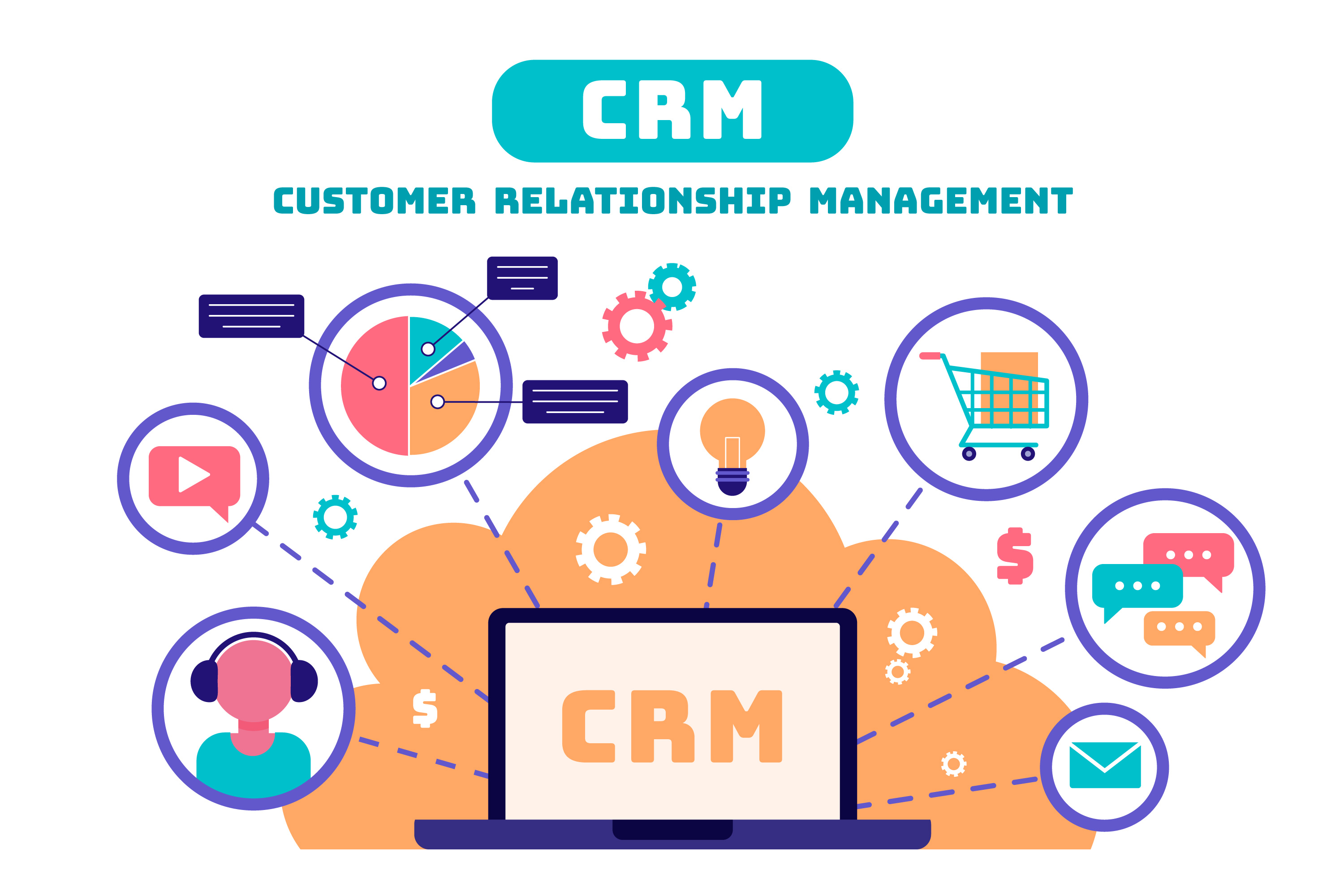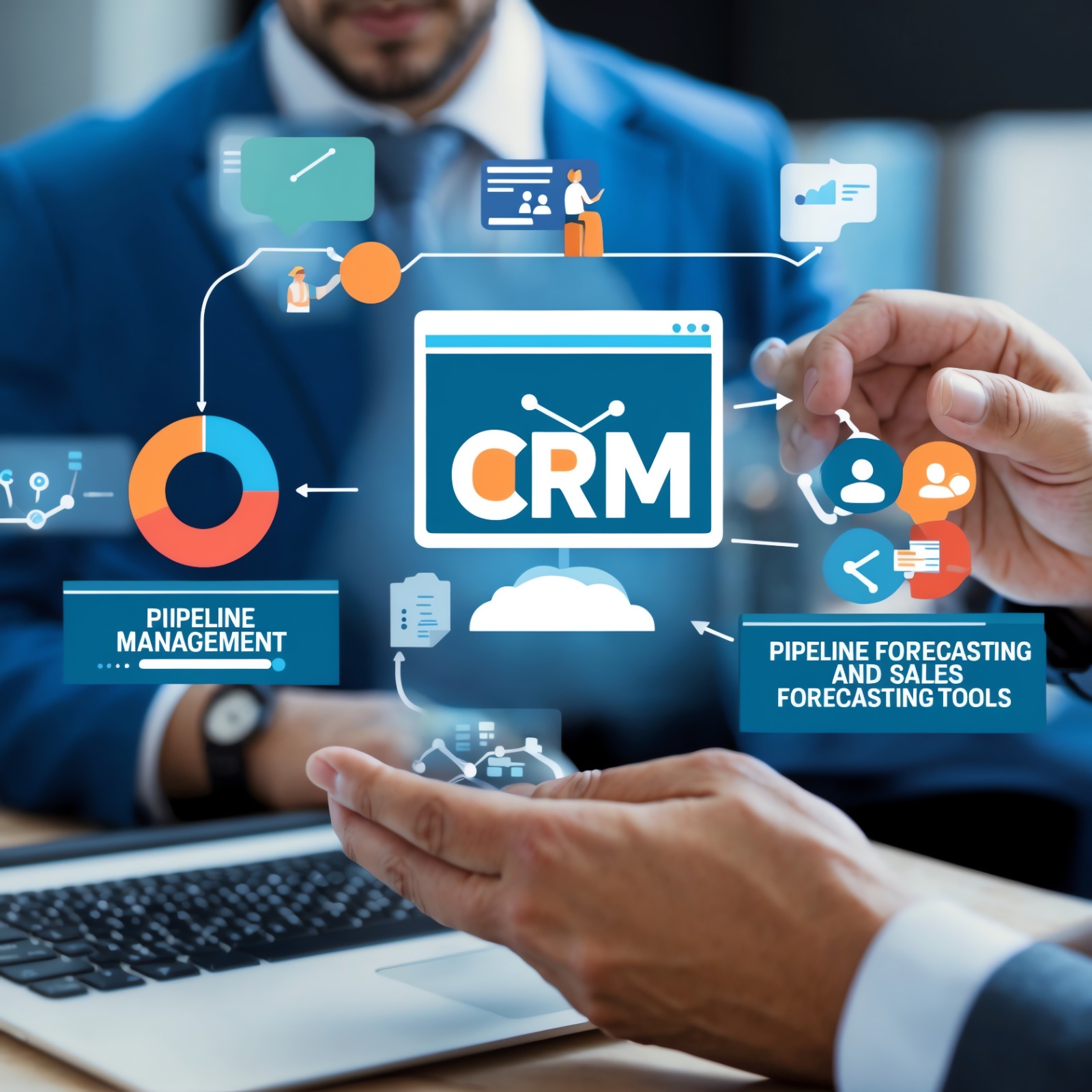CRM
Customer Relationship Management
CRM stands for Customer Relationship Management. It refers to strategies, tools, and technologies that businesses use to manage and analyze customer interactions and data throughout the customer lifecycle. The primary goal of CRM is to enhance customer relationships, improve customer satisfaction, and drive sales growth by better understanding and responding to customer needs.


Benefits of CRM
1:- Improved Customer Relationships: By centralizing customer information, CRM helps businesses understand their customers better, leading to stronger relationships and loyalty.
2:- Increased Sales: CRM tools can help identify sales opportunities, track leads, and streamline the sales process, ultimately boosting sales performance.
3:- Enhanced Customer Service: With access to detailed customer data, support teams can provide personalized service and quicker resolutions to issues.
4:- Better Data Management: CRM systems centralize customer information, making it easier to track interactions, preferences, and history.
5:- Targeted Marketing: CRM enables businesses to segment their customers and tailor marketing campaigns to specific groups, increasing the effectiveness of marketing efforts.
6:- Improved Communication: Centralized data facilitates better communication between departments (e.g., sales, marketing, and customer service), ensuring everyone is on the same page.
7:- Increased Efficiency: Automating routine tasks like data entry and follow-up reminders saves time and allows employees to focus on more valuable activities.
8:- Real-Time Analytics: CRM systems provide insights and analytics on customer behavior and sales performance, helping businesses make informed decisions.
9:- Customer Retention: By understanding customer needs and preferences, businesses can proactively address issues and enhance customer satisfaction, leading to higher retention rates.
10:- Scalability: As a business grows, CRM systems can be scaled to handle increased customer data and interactions without compromising performance.
Why We Use CRM
Using CRM (Customer Relationship Management) systems offers several compelling reasons:
1:- Centralized Customer Information: CRM systems consolidate all customer data in one place, making it easily accessible to all relevant teams.
2:- Improved Customer Relationships: By tracking interactions and preferences, businesses can build stronger, more personalized relationships with customers.
3:-Increased Sales Efficiency: CRM helps manage leads and sales pipelines, enabling sales teams to prioritize opportunities and close deals more effectively.
4:- Enhanced Customer Service: Support teams can access complete customer histories, allowing for quicker and more informed responses to inquiries and issues.
5:- Data-Driven Insights: CRM provides analytics and reporting tools that help businesses understand customer behavior, sales trends, and performance metrics, supporting better decision-making.

6:- Targeted Marketing: CRM enables segmentation of customer data, allowing for more effective, tailored marketing campaigns that resonate with specific audiences.
7:- Streamlined Processes: Automation of routine tasks, such as follow-up reminders and data entry, improves efficiency and reduces manual errors.
8:- Collaboration Across Teams: CRM fosters better communication and collaboration between sales, marketing, and customer service teams, ensuring a unified approach to customer management.
9:- Customer Retention: By understanding customer needs and addressing issues proactively, businesses can improve satisfaction and loyalty, reducing churn.
10:- Scalability: As businesses grow, CRM systems can adapt to handle increased customer interactions and data without compromising performance.
